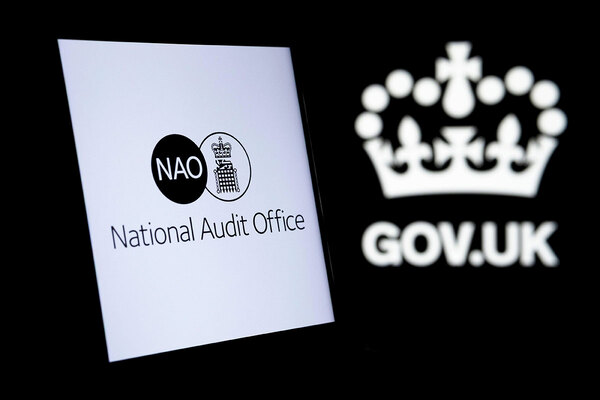You are viewing 1 of your 1 free articles
‘Unachievable’ deadline pushed back for energy meter switch-off
The government has delayed a plan to switch off old energy meters at the end of the month after campaigners branded the deadline “unachievable”.
Ministers have confirmed that a widespread switch-off of Radio Teleswitch Service (RTS) meters will not happen on 30 June as planned, due to “unacceptably slow progress” to replace them.
Instead, the government will make a “limited start” on a “cautious and targeted phase-out” to the service over the summer, which it said would protect families.
The phased approach will begin with a maximum of 600 households over three weeks in “carefully targeted” areas, with the government monitoring suppliers’ performance, the Department for Energy Security and Net Zero (DESNZ) said.
Affected customers will be contacted in advance, officials said. It urged households to respond to energy suppliers and book appointments to have their meter replaced.
The delay came after warnings that thousands of people with RTS meters could face unexpected disruption to their heating and hot water from the end of the month. Scotland was particularly at risk of disruption, experts warned, because around 105,000 RTS meters are installed there.
RTS meters use radio signals to switch older electricity meters between different tariffs, such as peak and off peak, and can also be used to turn heating and hot water systems on and off at specific times of the day.
The service was introduced in the 1980s and is now reaching the end of its life. However, DESNZ admitted that “unacceptably slow progress” to replace the meters had left around 314,000 households still using them as of last month, equal to around 1% of British households.
The phase-out will now begin on a significantly smaller scale, in areas with “very few” RTS customers, meaning energy suppliers will be ready to respond rapidly to protect households who most need support. In advance of any phase-out activity in their area, households will be contacted by their energy supplier to inform them well ahead of time, before their meters are affected.
Ministers said they expected suppliers’ momentum to install replacement meters to increase over the coming weeks.
Miatta Fahnbulleh, minister for energy consumers, said: “We have stepped in to ensure that thousands of vulnerable consumers with RTS meters do not experience any sudden disruption at the end of this month.
“I will be watching suppliers closely to make sure they are doing everything they can to make sure the transition is as smooth as possible.”
Charlotte Friel, director of retail pricing and systems at energy regulator Ofgem, said: “Customers must be protected at every stage of the phased area-by-area shutdown, and we are spelling out to suppliers key requirements that must be met before an area loses its RTS signal.
“At the same time, we expect energy companies to go faster, building on the work of the cross-sector taskforce set up by Ofgem that has seen the upgrade rate rise from 1,000 meters per month, to more than 1,000 per day.
“While this carefully managed phase-out process should reassure customers, it remains crucial that these meters are replaced urgently, so it’s vital to engage with your supplier when offered an appointment.”
Ms Fahnbulleh will meet Ofgem and trade association Energy UK on a fortnightly basis to review how the slower phase-out is progressing, with a particular focus on Scotland, as well as remote and rural areas, to ensure all efforts are made to reach these households.
Suppliers will continue contacting households to book replacement appointments and consumers are urged to respond as soon as possible. In most cases, this will involve switching to a smart meter. This can work in the same way as RTS meters, with automatic peak and off-peak rates, and the ability to turn heating and hot water systems on and off, ensuring minimal disruption to households.
Simon Francis, coordinator of the End Fuel Poverty Coalition campaign, said: “The RTS switch-off process was doomed to failure after it became clear that the deadline was simply unachievable. Ministers are right to be getting a grip on the situation and holding Ofgem and the energy industry to account.
“We now need to see a plan published that sets out how the gradual switch-off will take place, including which regions will be affected and when.
“Crucially, we also need firm and binding reassurances that no customers will be left without heating or hot water, and that no household will face higher bills as a result of the changes.”
Alongside the delay to the RTS meter switch-off, DESNZ announced it was expanding the number of households eligible for the Warm Home Discount this winter. Anyone on means-tested benefits will now have £150 automatically knocked off their fuel bills, no matter what size property they live in.
Energy companies pay for and distribute the £150 discount across England, Scotland and Wales, but the government sets the criteria for who should receive it. Those rules were tightened under the previous government, limiting the payment to those on the guaranteed element of Pension Credit, or those on means-tested benefits living in a home with a high energy score.
Now the qualification about property size, type and home energy score is being scrapped. As a result, this winter, 2.7 million more homes will get this extra energy-bill help, including almost a million households with children.
Mr Francis said: “Expanding the Warm Home Discount is a welcome step that will help more households this winter. But the scheme still leaves out some of those most at risk, including people with long-term health conditions, disabilities and those on non-means-tested benefits, who often face the highest energy costs.
“With bills still hundreds of pounds higher than in 2020, millions will continue to face unaffordable energy and cold, damp homes this winter.
“Alongside the energy-efficiency investment announced in the Spending Review, the government must commit to a permanent social tariff and reform energy pricing to ensure every household can benefit from cheap renewable energy.”
Sign up for our asset management and sustainability newsletter
Already have an account? Click here to manage your newsletters
Latest stories









